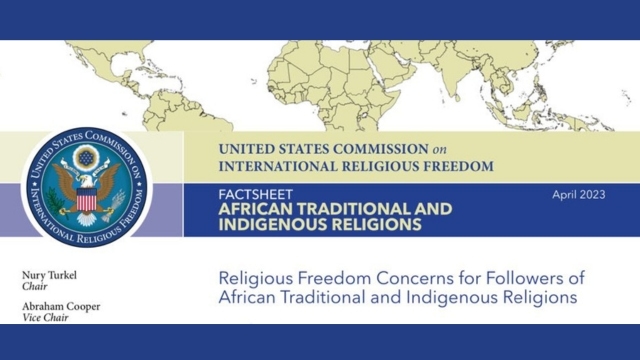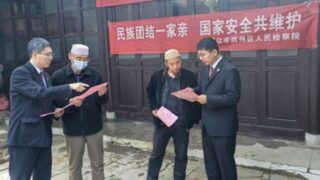The American agency calls the attention of the international community to a neglected religious liberty issue.
by Massimo Introvigne


One would assume that African states would be proud of African indigenous spirituality, a cultural treasure mentioned as such in UN and UNESCO documents. This is not the case, according to a new report by the USCIRF, the United States Commission on International Religious Freedom, a bipartisan independent commission whose members are appointed by the congressional leaders of both parties and nominated by the President of the U.S.
According to the report, published on April 4, 2023, “Within the discourse on freedom of religion or belief in Africa, the experiences of practitioners of African traditional and indigenous religions are often neglected or peripheral. Some of the most significant challenges adherents of these faith traditions endure include violence and impunity, legal restrictions and coercion, the desecration of sacred lands and objects, and official and societal discrimination.”
The report notes that, while Christianity and Islam are undoubtedly important religions of Africa, African indigenous spirituality has a tradition dating back to some 100,000 years ago. “While some experts assessed that the number of practitioners of African traditional and indigenous religions decreased throughout the 20th century and predicted they would continue to do so, recent decades have seen a resurgence of traditional and indigenous practitioners in the region,” the report states.


Bitter Winter has documented recently the astonishing success of one such resurgence, The Revelation Spiritual Home movement led by Dr. Samuel Radebe (IMboni uZwi-Lezwe Radebe) in South Africa.
“Throughout Africa, many adherents to African traditional and indigenous religions practice their faiths in relative peace. However, in several instances these individuals have experienced violations of their rights to freedom of religion or belief as protected under international law,” the report notes. In several cases, Christian and Muslim extremists have attacked gatherings of African indigenous spirituality. There have been tragic incidents. For example, “In 2020 fighters from the Islamic State in Mozambique insurgency attacked a male initiation ceremony and beheaded over a dozen men and teenage boys. In 2022, Boko Haram fighters [in Nigeria] slit the throats of 20 women they accused of witchcraft.”
The report discusses the complicated question of attacks against alleged witches. In fact, “not all individuals who are targeted with violence based on allegations of witchcraft are necessarily practitioners of African traditional or indigenous religions.” However, there have been cases where false accusations of witchcraft have been accused to persecute or discriminate against African indigenous spirituality. Sacred lands and shrines have also been desecrated, and practitioners of African indigenous spirituality have experienced problems with their burial practices and cemeteries.
Even in democratic African states, the report notes, “some governments discriminate against practitioners of African traditional and indigenous religions.” “They demonstrate systematic discrimination and bias against practitioners of African traditional and indigenous religions, many of whom are religious minorities in their areas of origin, based on their beliefs. State institutions like founding documents, judicial procedures, and school curricula show overt favoritism for faiths like Christianity or Islam and skepticism or bias against traditional or indigenous religions.”
Bitter Winter has documented specific cases in South Africa, and criticized the work there of the Commission for the Promotion and Protection of the Rights of Cultural, Religious and Linguistic Communities (CRL), which has applied to African indigenous spirituality and some Christian minorities categories of the Western anti-cult discourse. The USCIRF report tells us that there is a broader problem, and African indigenous spirituality is at risk of discrimination or worse throughout the whole continent.









